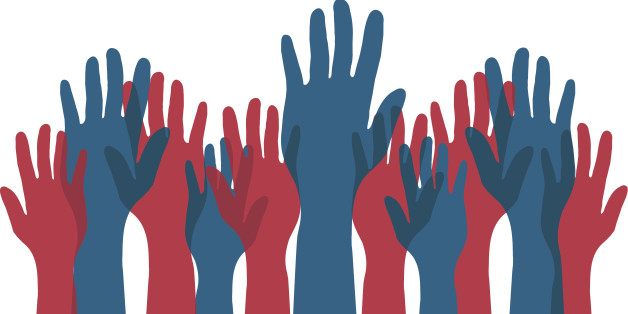
Reservation is the Public Policy to Make India Democratic
The way we define something changes the way we perceive something. We try to define something based on the interest of our own and the group that we come from. The clashes of definitions create confusion. This is the reason why it is important to clearly understand, express, and then communicate so that everybody at least come to a common minimum understanding of what it really is. Reservation is the public policy to make India democratic.
The communication is a key. If there is a discussion on “reservation policy”, the upper caste dominated press (recently Financial Express) cites that the reservation is against “merit” and it is against “administrative efficiency”.
Time and again, people argue that the reservation must be based on “poverty”. One can nip these arguments in bud, but the way they are promoted by the 3 percent of the upper castes, who manage 90 percent of the positions in the media and disproportionate seats in all the organisations of the Government is pathetic and dishonest.
Merit
To say that only the Brahmins and the upper caste have to merit is the mockery of the concept of merit. But the upper caste media go on writing like this that only they possess the merit. Dalits have understood that the concept of merit is created by the upper caste in India to hide their demerit, but the larger chunk of India’s population is shamelessly accepting that they are less meritorious than the Brahmins and the Upper castes. That section is the backward classes.
The moment the backward classes understand that they are not inferior to the upper castes; they will blow the caste system. But when this will happen, no one knows. Brahmins and the upper castes do not have inherent merit, they benefit because of the social order in Hinduism that only promotes the interests of the upper castes. The Dalits and backward classes are made to feel so low that their psychological confidence is broken into pieces. It is the caste system that creates advantages and disadvantages for the people in India.
Reservation is not poverty alleviation scheme.
Reservation is not a dole out to the community. It is not meant for offering financial gains to the community. The purpose of the reservation is not to alleviate poverty. In fact, it cannot alleviate poverty from this country. But the reservation is often publicised on the basis of poverty alleviation program. It is not.
It is a program for the democratisation of the Indian society. Why only the Brahmins and Upper castes should run the Government and country? They are just 3 percent and owing to the inherent benefit of the caste system, they benefit from the “special” reservation. But now our country is not ruled by any Brahminical Smriti, but the constitution and the goal of the constitution are to promote democratisation and not the caste system.
To promote democracy, all the castes and classes should be reflected in the democratic system. The reservation system is the way to create democratic India. The reservations must be in all positions. Where there is a government, the reservation must be there. The time has come to give reverse reservation perhaps. Reserve seats only for the Brahmins and the upper caste with a generous quota of 10 percent, and other seats can be de-reserved and can be general seats.
Administrative Efficiency
Indians should know now that how the Brahmin-dominated bureaucracy and judiciary have failed the country. If they were efficient, why could not they do anything for the country to make it more democratic? Why didn’t the Brahmins give up their caste privileges for the country? They cannot. Because the Brahmins by nature are anti-democratic. It is perhaps time to make the administration more efficient and democratic by bringing in Dalits, OBCs, and minorities at the helms of power.
Poverty as the base of reservation
The reservation is in place because of the particular social order that Indian society is steeped in. To destroy that social order and to replace it with the democracy is the purpose of the reservation. The basis of the reservation is not poverty, but the caste system. It is not there because some communities are poor. No. The reservation is there because of the social discrimination. The basis of the reservation is the prevalent discrimination and the inherent bias in India’s social order.
Judging from all the angles, particularly from the angle of democracy and empowerment of all, the reservation is the best public policy that can do away with the privileges of the few. It is time to make every institution in India democratic. Nothing should be undemocratic in India: army, judiciary, films, and every place must be made democratic and accessible to all. Let’s throw away the caste system by fighting for due representation of each community.
Author – Mangesh Dahiwale, Human Rights Activist



Through fights only we can alleviate the sufferings of dalits. Ambedkar fought against all odds. He had the moral support of democratic minded people, British.
We don’t have that comfort now. The backlash from the pyramidal casteist forces is becoming stronger and stronger. They have money, muscle, police and political power with them.
Very nice mangesh